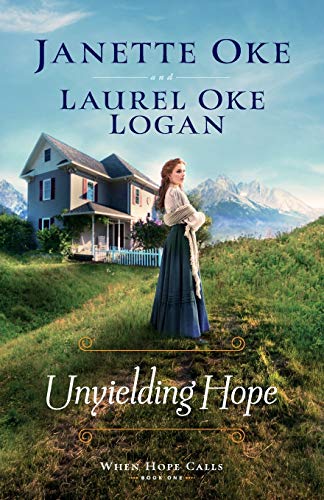Unyielding Hope (When Hope Calls)
After the death of her stepmother, Lillian and her adoptive father are about to close up their Alberta home for an extended visit to Wales, when a lawyer arrives with news that Lillian’s sister (long thought dead) may still be alive. When Lillian finds her sister, the circumstances aren’t at all what she expects. Grace lives in a tiny apartment and has five orphans in her charge. She has grown up in orphanages, as opposed to Lillian with her family stability. Grace has a profound belief in God’s plan, but Lillian doubts. The new-found family moves back into the closed-up house, where they soon take in twin “returned” boys as well. Finding homes for seven children proves daunting, as the sisters are determined the adoptive parents look upon the children as family, not hired help or unpaid labour. Lillian harbours fond feelings for a local man, and Grace doesn’t divulge her own affections until feelings get trampled on. What happens if either sister marries? What and who takes precedence – the children’s welfare or the wishes of a potential spouse? This is all pre-empted by the cliffhanger at the end of the book which leads into the next in the When Hope Calls series.
The Okes’ novel delves into the plight of thousands of Home Children who were shipped from England to Canada and beyond, from about 1870 to 1930. Like many benevolent schemes, it seemed like a good idea at the time, but looking back, there were countless problems which had not been addressed or foreseen. Children were often returned like soiled goods for petty reasons, adoptive family circumstances changed, and abuse was not uncommon. Within the boundaries of the differences in the sisters’ faith, the author explores local prejudice, and the inherent goodness of people who see the children’s potential beyond their orphan status. Heartwarmingly inspirational.










